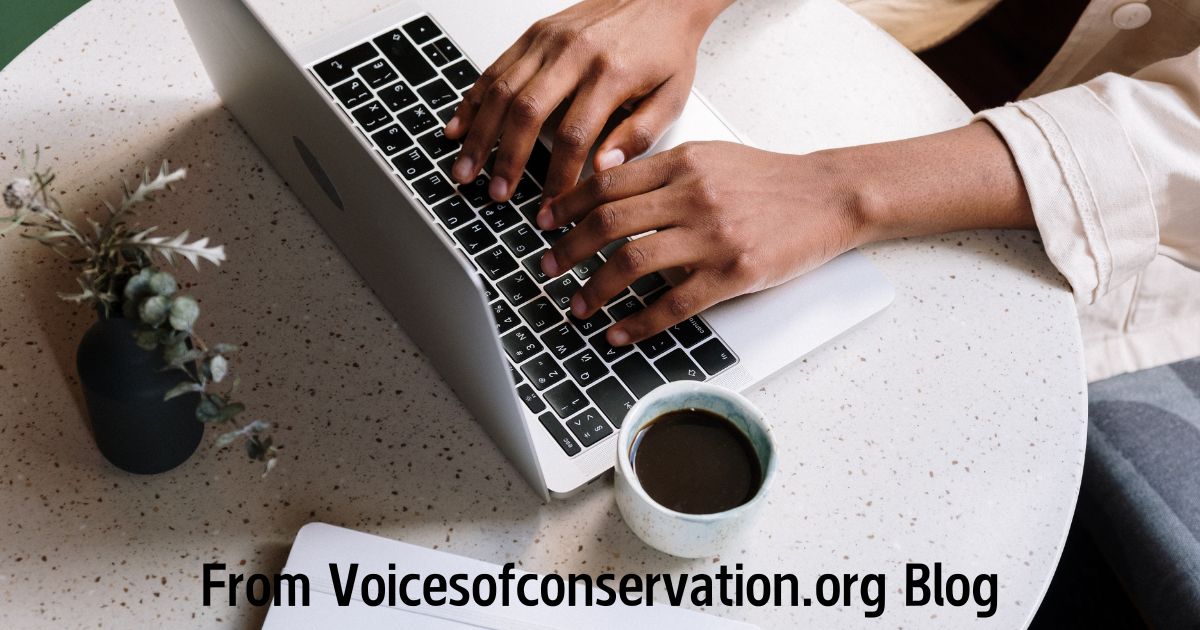From Voicesofconservation.org Blog
Voices of Conservation is a website that helps people learn about the environment, how to protect wildlife, and live sustainably.
It focuses on teaching people simple ways to help the planet, like reducing pollution and saving natural resources. The platform shares easy-to-understand information about important issues like climate change and wildlife conservation.
Its goal is to inspire everyone to take small actions that can lead to big changes, making the Earth healthier for future generations.
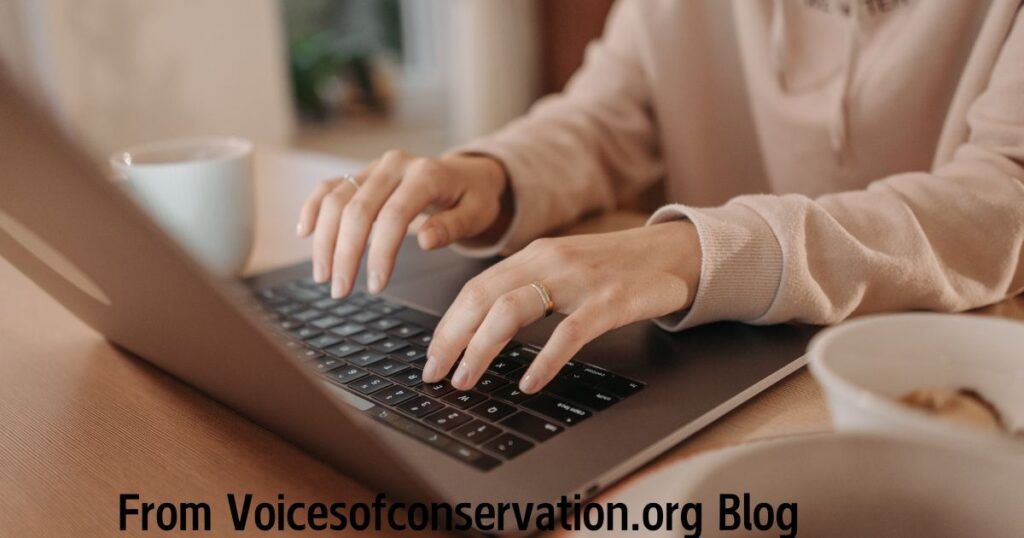
From voicesofconservation.org blog
The Voices of Conservation blog focuses on why it’s important to protect nature and how everything in the environment is connected. Conservation is about saving wildlife, keeping a balance in nature, and making sure we use natural resources like water and trees in a way that they can last for the future.
It means protecting animals, plants, and ecosystems while making sure that humans can live in harmony with nature. Here’s a simple look at what environmental conservation involves and why it matters.
Why Conservation Matters?
Conservation is important for keeping biodiversity alive, which helps ecosystems provide essential services to humans, like clean air, water, food, and materials. Without these ecosystems, human life would be hard to sustain. Conservation efforts help:
- Save species: Stopping species from going extinct is crucial for maintaining biodiversity.
- Protect natural habitats: Healthy ecosystems help regulate our environment, including water cycles, soil quality, and climate stability.
- Promote sustainable resource use: By conserving natural resources, we ensure that future generations can also enjoy and benefit from nature’s gifts.
Water Pollution
Water pollution is a serious environmental issue today, and the Voices of Conservation blog focuses a lot on raising awareness about it. Let’s look at what causes water pollution, its effects, and how we can help fix it.
Causes of Water Pollution
Water pollution comes from many sources, mainly due to human actions. Here are the major causes:
- Industrial Waste: Factories often release harmful substances like heavy metals and toxic chemicals into rivers, lakes, and oceans, which can harm fish and other water life.
- Agricultural Runoff: When farmers use too many fertilizers and pesticides, these chemicals can wash into nearby water bodies, causing problems like nutrient pollution and harmful algae blooms.
- Plastic Waste: Every year, millions of tons of plastic enter our oceans. This pollution is not only messy but also dangerous, as animals can swallow plastic pieces or get trapped in plastic waste.
Impacts of Water Pollution
The effects of water pollution are serious and go beyond harming sea life. They can also affect:
- Human Health: Polluted water can spread diseases like cholera, dysentery, and typhoid fever, which are especially dangerous in poorer countries with limited access to clean water.
- Ecosystems: Pollutants can disrupt food chains, kill fish and other aquatic animals, and destroy their habitats, leading to the loss of different species.
- Climate Change: Dirty water can disturb natural water cycles, which makes climate change worse by reducing the Earth’s ability to control temperatures and support life.
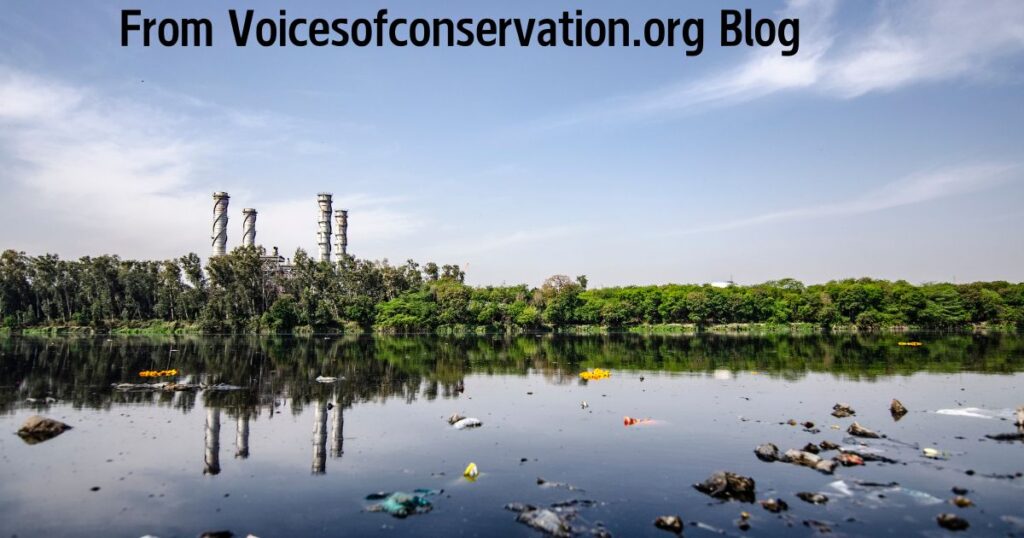
Solutions to Water Pollution
To reduce water pollution, we need action from governments, businesses, and individuals. Here are some key steps:
- Stricter Environmental Rules: Governments should enforce laws, like the Clean Water Act, to hold those who pollute accountable for their actions.
- Cutting Down on Plastic Use: People can help by using fewer plastic items and choosing reusable products. Supporting companies that care about Friendly packaging is also important.
- Sustainable Farming Practices: Farmers can reduce the use of harmful chemicals to help decrease the runoff that pollutes water bodies.
By working together and taking these steps, we can help protect our water and make a positive change for the environment.
Wildlife Trafficking
The illegal trade of wildlife is a serious environmental crisis that the Voices of Conservation blog highlights. Wildlife trafficking harms both biodiversity and human health.
What is Wildlife Trafficking?
Wildlife trafficking is the illegal capture, transport, and sale of animals and plants. This trade is driven by the demand for exotic pets, traditional medicine, and luxury items. As a result, many species are being pushed towards extinction.
Consequences of Wildlife Trafficking
Wildlife trafficking has serious effects, including:
- Biodiversity Loss: The poaching of endangered animals like elephants and rhinos threatens not only those species but also disrupts ecosystems.
- Economic Damage: Communities that depend on ecotourism suffer when famous animals are killed or removed from their habitats.
- Health Risks: Wildlife trafficking increases the chance of diseases jumping from animals to humans. For example, diseases like COVID-19 are thought to have come from wildlife markets.
Combating Wildlife Trafficking
To fight against wildlife trafficking, we can take several steps:
- Stronger Laws: Governments need to enforce tougher laws to stop poaching and illegal wildlife trade.
- Public Awareness: It’s important to educate people about the dangers of buying illegal wildlife products.
- Support for Local Communities: Providing alternative ways for people in affected areas to earn a living can help reduce their need to engage in poaching.
By working together, we can help protect wildlife and preserve our environment.
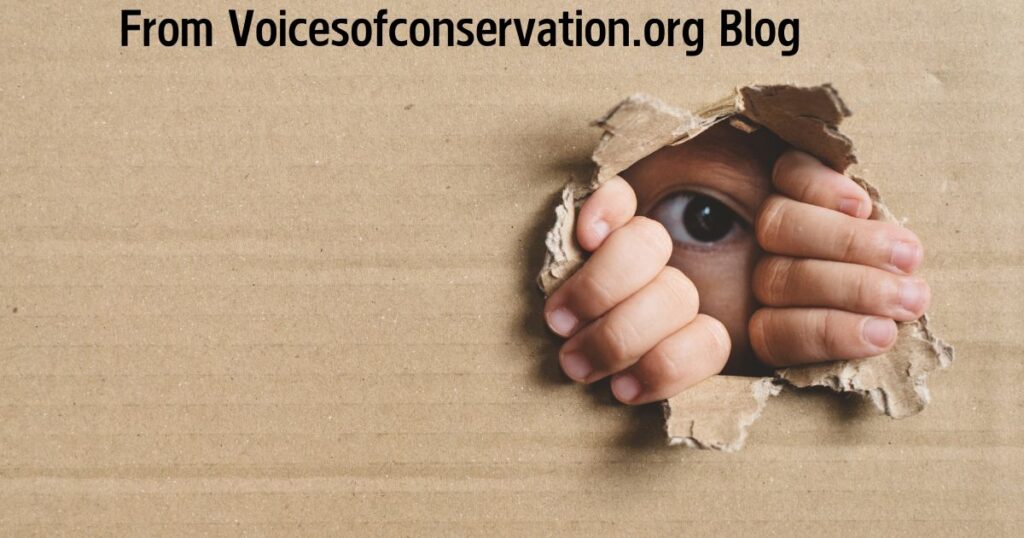
How Individuals Can Contribute to Conservation Protection
Each person can make a difference in protecting the environment. Here are simple ways individuals can contribute to conservation efforts and help protect our planet:
1. Reduce, Reuse, Recycle
- Action: Minimize waste by recycling materials, reusing items instead of throwing them away, and reducing overall consumption.
- Impact: This helps reduce pollution, saves energy, and lowers the demand for new resources, protecting ecosystems and wildlife.
2. Conserve Water and Energy
- Action: Turn off lights and appliances when not in use, take shorter showers, and fix leaky faucets.
- Impact: Conserving water and energy reduces the strain on natural resources and helps combat climate change by lowering carbon emissions.
Ecological Education
One of the best ways to protect the environment is by teaching the next generation about it. The Voices of Conservation blog highlights how important it is to educate kids about ecology. This helps them understand the environment and encourages responsible behavior from a young age.
Why is Ecological Education Important?
Ecological education helps children learn about the natural world and how humans affect it. By studying ecosystems, climate change, and conservation efforts, kids develop:
- A Sense of Responsibility: Kids who learn about caring for the environment are more likely to practice sustainable habits as adults.
- Problem-Solving Skills: Understanding ecological issues helps children think of creative solutions to environmental problems.
- Awareness of Biodiversity: Kids learn how different species and ecosystems are connected, which encourages them to protect nature.
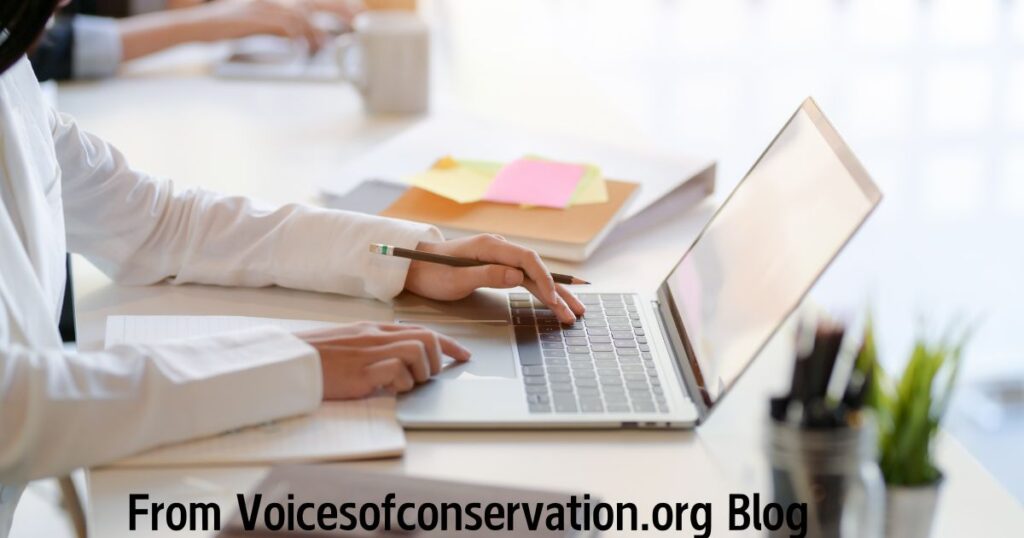
Effective Ways to Teach Kids About Ecology
Here are some simple and fun ways to teach children about ecology:
- Outdoor Learning: Taking kids on nature walks, camping trips, or to wildlife sanctuaries allows them to experience nature up close.
- Interactive Projects: Activities like recycling, gardening, or building wildlife habitats show kids practical ways to help the environment.
- Games and Simulations: Educational games focusing on conservation make learning about ecology fun and engaging.
By teaching kids about ecology, we can inspire them to care for the environment and take action to protect it.
Why Conservation Is Important for Our Planet
Conservation is critical to keeping our planet healthy and balanced. It focuses on protecting nature, wildlife, and resources, which are all essential for life. Here’s why conservation matters:
1. Protects Wildlife
- Reason: Many animals and plants are at risk of disappearing forever. Conservation helps protect these species and keeps ecosystems balanced.
- Impact: When animals and plants are protected, ecosystems can function well, supporting food chains and maintaining natural balance.
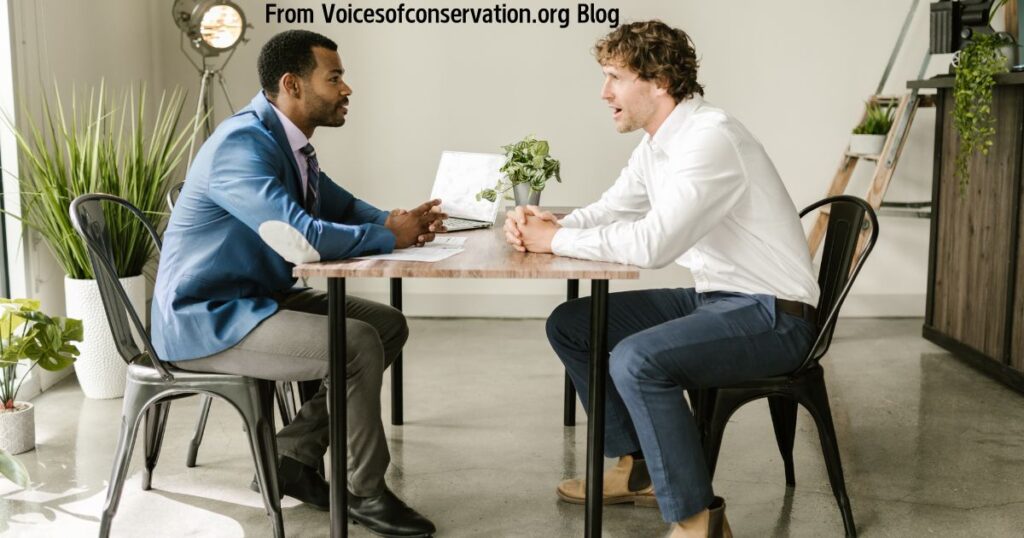
2. Saves Natural Resources
- Reason: Resources like water, trees, and minerals are limited. Conservation helps us use these resources wisely so they don’t run out.
- Impact: Protecting natural resources makes sure future generations will have access to clean water, healthy soil, and other essentials.
Sustainable Living
The Voices of Conservation blog encourages people to live in a way that helps protect the environment. This is called sustainable living, and it’s a great way to make a positive impact.
What is Sustainable Living?
Sustainable living means making choices that lower your effect on the environment. This includes reducing waste, saving energy, and using better products for the planet.
Tips for Sustainable Living
- Reduce, Reuse, Recycle: Reducing waste by recycling and reusing items is an easy way to live more sustainably.
- Save Energy: Using energy-efficient appliances, turning off lights when not needed, and insulating your home can help reduce your carbon footprint.
- Support Friendly Brands: Buy from companies that care about the environment. This can push businesses to be more responsible.
- Eat Sustainably: Eating less meat and choosing locally sourced food can help reduce your impact on the planet.
Read Also: NoBullSwipe.com | Website Promoting Sustainable Living
Success Stories in Conservation From Voicesofconservation.org Blog
The Voices of Conservation blog shares many inspiring success stories of how conservation efforts have made a real difference in protecting our environment and wildlife. Check success stories from VoicesofConservation.org blog.
These stories show how, with commitment and collaboration, we can help restore ecosystems and save species from extinction.
1. The Recovery of the Bald Eagle
The bald eagle, the national bird of the United States, was once on the brink of extinction due to habitat destruction and the use of the pesticide DDT.
Thanks to conservation efforts, including banning DDT and protecting nesting areas, the bald eagle population has rebounded. Today, it is no longer considered endangered.
2. The Return of the Mountain Gorilla
Mountain gorillas were critically endangered, with fewer than 300 left in the wild in the 1980s. Through focused conservation efforts, including anti-poaching measures and habitat protection, their numbers have grown to over 1,000.
This remarkable comeback shows how targeted action can save a species from the edge of extinction.
Read Also: What is Make1m.com?
Conclusion
The Voices of Conservation blog provides valuable information on protecting the environment and living sustainably. From voicesofconservation.org blog, you can learn about important issues like water pollution, wildlife trafficking, and climate change. By taking action to reduce our environmental impact, we can all help conserve our planet.
Whether through supporting conservation laws, adopting eco-friendly habits, or educating others, everyone has a role in protecting our natural world. Find more insights from voicesofconservation.org blog.
FAQs on from voicesofconservation.org blog
What topics are covered in the content from voicesofconservation.org blog?
The blog covers a range of topics, including water pollution, wildlife trafficking, climate change, and sustainable living practices.
How can I contribute to conservation efforts based on insights from voicesofconservation.org blog?
You can adopt friendly habits, support conservation laws, and educate others about the importance of protecting our environment.
Why is wildlife protection emphasized in articles from voicesofconservation.org blog?
Wildlife protection is crucial for maintaining biodiversity, which is essential for healthy ecosystems and human survival.
How does climate change affect wildlife according to information from voicesofconservation.org blog?
Climate change leads to habitat loss, food scarcity, and increased extinction risks for many species.
Where can I find more resources about conservation from voicesofconservation.org blog?
You can explore more articles and resources directly on the voicesofconservation.org blog website.
What practical steps can individuals take based on advice from voicesofconservation.org blog?
Individuals can reduce waste, conserve energy, and choose sustainable products to lessen their environmental impact.

